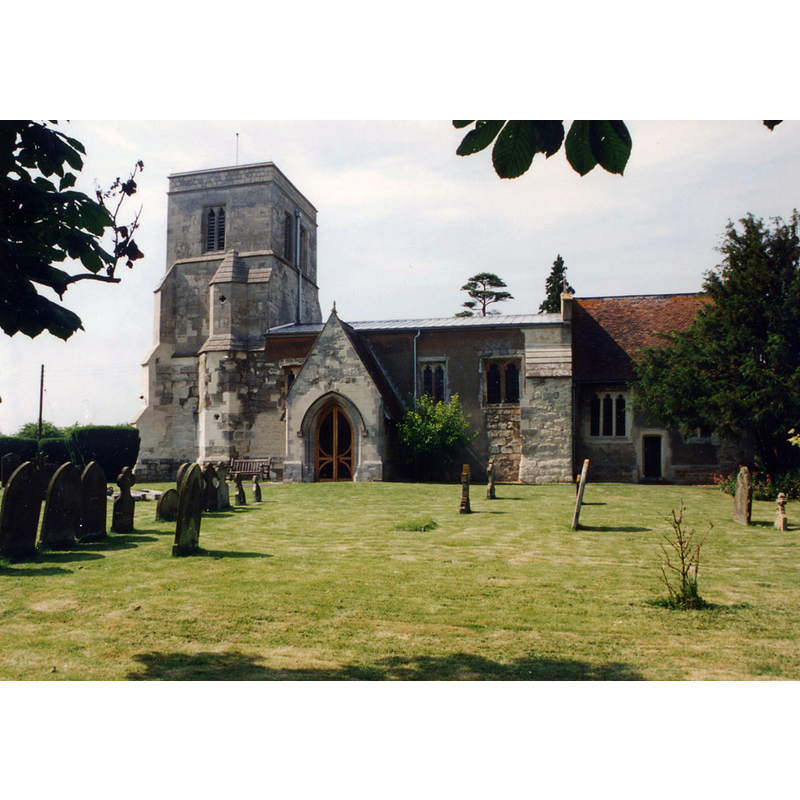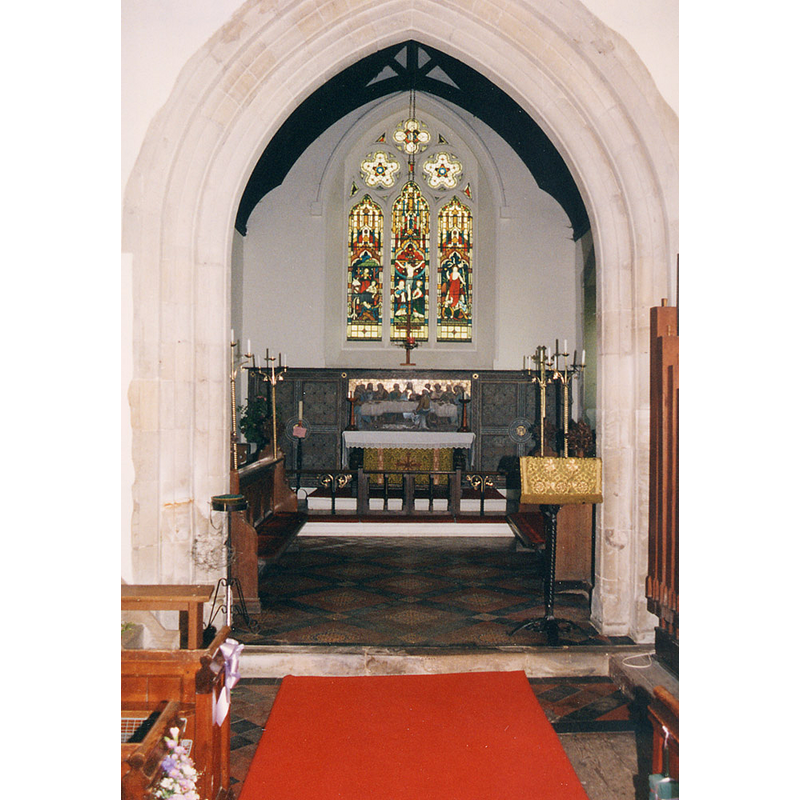Cheddington / Cetedene / Cetedone / Cetendone [Domesday] / Chetindon / Chetingdon
![Main image for Cheddington / Cetedene / Cetedone / Cetendone [Domesday] / Chetindon / Chetingdon](/static-50478a99ec6f36a15d6234548c59f63da52304e5/compressed/1151117013_compressed.png)
Image copyright © John Salmon, 2012
CC-BY-SA-2.0
Results: 4 records
view of font and cover in context
Copyright Statement: Image copyright © John Salmon, 2012
Image Source: photograph taken in 1994 by John Salmon [www.geograph.org.uk/photo/3267112] [accessed 16 November 2015]
Copyright Instructions: CC-BY-SA-2.0
view of church exterior - south view
Copyright Statement: Image copyright © John Salmon, 2012
Image Source: photograph taken in 1994 by John Salmon [www.geograph.org.uk/photo/3267107] [accessed 16 November 2015]
Copyright Instructions: CC-BY-SA-2.0
view of church interior - chancel and east end
Copyright Statement: Image copyright © John Salmon, 2012
Image Source: photograph taken in 1994 by John Salmon [www.geograph.org.uk/photo/3267109] [accessed 16 November 2015]
Copyright Instructions: CC-BY-SA-2.0
design element - motifs - stop - 4
Scene Description: knob stops at the angles of the lower half of the pedestal base
Copyright Statement: Image copyright © John Salmon, 2012
Image Source: photograph taken in 1994 by John Salmon [www.geograph.org.uk/photo/3267112] [accessed 16 November 2015]
Copyright Instructions: CC-BY-SA-2.0
INFORMATION
Font ID: 01363CHE
Object Type: Baptismal Font1
Font Century and Period/Style: 14th - 15th century, Decorated? / Perpendicular?
Church / Chapel Name: Parish Church of St. Giles
Font Location in Church: Inside the church, against a pier in the nave
Church Patron Saint(s): St. Giles [aka Aegidus, Egidus, Gilles]
Church Address: Cheddington, Buckinghamshire LU7 0SF
Site Location: Buckinghamshire, South East, England, United Kingdom
Directions to Site: Located off (W) the A488, 8 km S of Leighton Buzzard, 12-13 km WNW of Aylesbury
Ecclesiastic Region: Diocese of Oxford
Historical Region: Hundred of Cottesloe [in Domesday]
Additional Comments: disappeared font? (the one from the 12thC church here)
Font Notes:
Click to view
There are seven entries for Cheddington [variant spelling] in the Domesday survey [http://opendomesday.org/place/SP9217/cheddington/] [accessed 16 November 2015], none of which mentions cleric or church in it. Parker (1850) writes: "The font is octagonal of D[ecorated] character." Ditto in Sheahan (1862), who mentions "a neat modern cover". Listed in Cox & Harvey (1907) as a baptismal font of the Decorated period. The Victoria County History (Buckingham, vol. 3, 1925) notes: "The chancel and nave preserve the plan of a 12th-century church. A number of fragments of carved and moulded stones of that period have been preserved and are built into the walls. The church was largely altered in the 15th century, all the remaining detail being of that date with the exception of the chancel arch and the inner label of the east window, which was probably re-used from a 14th-century window. [...] The font, probably of the 15th century, is octagonal, and has a stem, with shaped stops, on a square base." The modern cover noted in Sheahan [cf. supra] is octagonal and flat, with metal decoration and ring handle. The font is located against a pier in the nave.
COORDINATES
UTM: 30U 660958 5747260
Latitude & Longitude (Decimal): 51.8529, -0.6629
Latitude & Longitude (DMS): 51° 51′ 10.44″ N, 0° 39′ 46.44″ W
MEDIUM AND MEASUREMENTS
Material: stone, type unknown
Font Shape: octagonal, mounted
Basin Interior Shape: round
Basin Exterior Shape: octagonal
LID INFORMATION
Date: 19th-century?
Material: wood, oak
Notes: [cf. FontNotes]
REFERENCES
- Victoria County History [online], University of London, 1993-. URL: https://www.british-history.ac.uk.
- Cox, John Charles, English Church Furniture, New York: E.P. Dutton & Co., 1907, p. 187
- Parker, John Henry, The Ecclesiastical and architectural topography of England: Oxfordshire, Oxford, London: Published under the sanction of the Central Commitee of the Archaeological Institute of Great Britain and Ireland [by] John Henry Parker, 1850, [entry no.] 66
- Sheahan, James Joseph, History and topography of Buckinghamshire, comprising a general survey of the county, preceded by an epitome of the early history of Great Britain, London; Pontefract: Longman, Green, Longman, and Roberts; William Edward Bonas [...], 1862, p. 658

